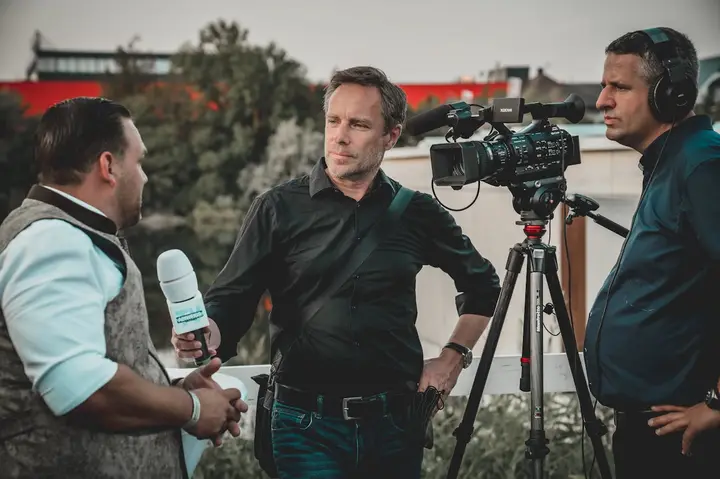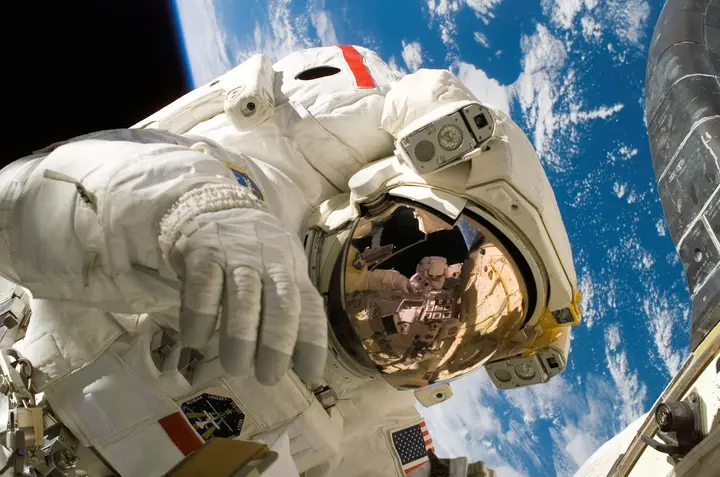The Unborn Multitude: A Reflection on Humanity's Future
Posted by: sunxin in Science 3 months, 2 weeks ago
Have you ever pondered the sheer scale of human existence, both past and future? In a world rife with uncertainty and doubt, it's easy to fall into the trap of thinking our days are numbered. But let's challenge that perspective and delve into a realm where the future is not just a distant horizon but a canvas brimming with potential.
The Unseen Menace: The Tale of Lyssa and the Rabies Epidemic
Posted by: sunxin in Science 3 months, 2 weeks ago
In the 1970s, an unconventional雨 of chickenheads descended upon Europe, bewildering foxes and delighting wildlife. These peculiar payloads, however, harbored a secret: they were loaded with a vaccine, a desperate attempt to vanquish the deadly rabies virus that had been terrorizing both wildlife and humans since the 1930s. This is the story of Lyssa, an ancient spirit of fury, and the relentless virus that bears her name.
The Resilience of Humanity: Will Our Civilization Survive the Unthinkable?
Posted by: sunxin in Science 3 months, 2 weeks ago
Have you ever wondered what would happen if our modern civilization were to collapse? At the height of its power, the Roman Empire was a testament to human advancement, with innovations like central heating and concrete. Yet, it ultimately crumbled, leaving us to question the fragility of our own society. What if our industrial technology, from pizza to smartphones, were to vanish overnight? Let's delve into the likelihood of such a disaster and humanity's capacity to bounce back.
The Essential Guide to Cultivating Lifelong Friendships
Posted by: sunxin in Science 3 months, 2 weeks ago
In a world where social connections can predict our happiness and even our lifespan, the art of making friends is more crucial than ever. Yet, in the era of scrolling through screens rather than scrolling through streets, many find themselves lonely and yearning for genuine connections. How do we bridge this gap and cultivate meaningful friendships? Let's dive into the science and the strategies that can help us build and maintain a supportive social circle.
The Marvelous Microcosm: A Journey into the Unseen Universe
Posted by: sunxin in Science 3 months, 2 weeks ago
Have you ever pondered the vastness of the universe and the tiny world that exists right beneath our feet? The universe, with its hundreds of billions of galaxies and sextillions of stars, seems colossal when viewed from the surface of our modest Earth. However, the journey into the microcosm reveals a realm that is equally, if not more, astonishing.
The sleeping giants beneath our feet: The truth about supervolcanoes
Posted by: sunxin in Science 3 months, 2 weeks ago
The Earth, a colossal sphere of semi-molten rock, harbors a fiery core as hot as the Sun's surface. Within its depths, heat from its birth and the decay of radioactive elements races towards the surface, channeled by rock currents spanning thousands of miles. The Earth's crust, a fragile shield against this inferno, is the only barrier standing in their way. But what happens when this shield is breached? Enter the supervolcanoes.
The Perils of Shooting Nuclear Waste into Space: A Costly Misadventure
Posted by: sunxin in Science 3 months, 2 weeks ago
Nuclear energy has long been a controversial topic, and one of the most pressing concerns is what to do with its byproduct: nuclear waste. The idea of shooting this waste into space has been floated as a potential solution, but is it really as simple as it sounds? Let's delve into the depths of this proposed method and uncover the myriad of problems that come with it.
The Cosmic Tsunami: The Impact of a Supernova on Earth
Posted by: sunxin in Science 3 months, 2 weeks ago
Have you ever gazed up at the night sky, marveling at the distant stars, only to ponder the sheer power they hold? Supernovae, the most powerful explosions in the universe, are capable of unleashing energy that can outshine entire galaxies. But what if one of these cosmic behemoths were to hit Earth? What would the consequences be? Let's delve into the potential impact a supernova could have on our planet.
The Unseen Conquest: The Intriguing Tale of Ant Slavery
Posted by: sunxin in Science 3 months, 2 weeks ago
In the shadows of the earth, beneath the ignore of human eyes, a war wages silently. A war not of flesh and blood, but of cunning and strategy, where the weak are subjugated and the strong reign supreme. This is the tale of the Polyergus, the most relentless of ant slave-makers.
Terraforming Mars: A Lethal Hellhole to a New World
Posted by: sunxin in Science 3 months, 2 weeks ago
Could the barren, oxygen-deprived landscape of Mars become our next home? It's a daunting challenge, but with the right technology and determination, we might just transform this hellhole into a thriving new world. Let's explore the possibility of terraforming Mars and the monumental task that lies ahead.
Recent Posts
- Tragedy Unfolds: The Heartbreaking Attack at Mogadishu's Leo Beach
- Clash in Liverpool: The Battle Between Anti-Racism and Anti-Immigration
- Tragedy Unfolds: Kerala's Heartbreaking Battle with Landslides
- Tragedy in Tarim: A Glimpse into the Aftermath of Israeli Aerial Strikes
- The Tragic Attack on Hamama School: A Story of Innocence Lost in Shik Radwan
Categories
- Official Announcement (3)
- News (1653)
- 新闻 (28)
- Technology (300)
- 科技 (235)
- 科普 (418)
- Science (409)
- 公开课 (180)
- MOOC (183)
- Business (36)
- 揭秘 (143)
- Mysteries (124)



